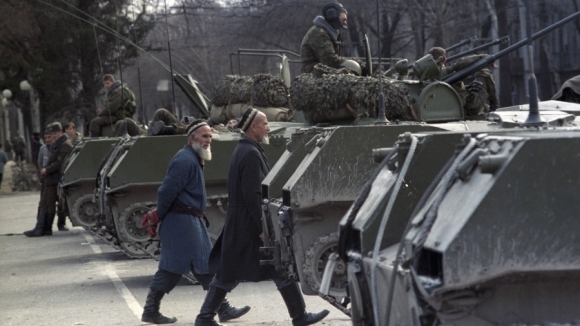
Russia Pressed to Pay for Its Military Base in Tajikistan
Publication: Eurasia Daily Monitor Volume: 9 Issue: 47
By:

As negotiations continue over the extension of Russia’s use of a military base in Tajikistan, the Central Asian country’s envoy to Russia suggests that his government wants Moscow to pay rent for operating the facility. Speaking to journalists on February 28, Abdulmajid Dostiev acknowledged that the issue of rent has been holding back the finalization of a new treaty which would extend Russia’s basing rights in Tajikistan for the next 49 years. The two countries had agreed to sign the treaty back in September 2011, but they left for later the contentious issue of payment.
Moscow has reportedly sought to prolong the treaty without committing to any payment arrangements. Russia remains the largest source of technical-military and economic assistance to Tajikistan, and Russian diplomats have proposed that this assistance should count as rent. However, the Tajik side wants Moscow to commit to a fixed amount of money that it would either pay in annual rent fees or spend on technical-military assistance to the country. Russian media have speculated that Dushanbe expects Moscow to contribute about $300 million annually, while Tajik experts say Dushanbe would settle for $30 million. Without commenting on the details of Tajikistan’s demands, Dostiev asserted that, “not a single country in the world today would give up the smallest plot of its land for free” (www.ozodi.org, February 28).
After Tajikistan’s independence in 1991, Moscow retained control of the Soviet 201st motorized rifle division, which had been stationed in the country. In 2004, the division was reorganized into Russia’s permanent military base. The base now has around 7,000 troops – Russia’s largest ground force deployed abroad – stationed in Dushanbe, Kulob and Qurghonteppa (www.news.tj, October 21, 2011). Russia has also sought access to the Indian-renovated Ayni air base near the Tajik capital, but Tajikistan made it clear that Moscow would have to pay to use the facility (EDM, February 9, 2011).
The timing of the Tajik ambassador’s comments suggests that Dushanbe is watching how Russia deals with similar demands brought by other post-Soviet countries. Dostiev’s interview came days after the visit of Kyrgyzstan’s President Almazbek Atambaev to Moscow where he demanded that Russia pay $15 million in overdue rent for using the air base at Kant, or risk being evicted. It was consequently clarified that Russia uses the air base free of charge and that the $15 million debt had accrued from its use of other military facilities in Kyrgyzstan. Yet, Russian officials promised to repay the debt “within several days” (www.kommersant.ru, March 1).
Moscow is facing considerably stronger pressure from Azerbaijan where it leases a Soviet-era ballistic missile early warning system (BMEWS) radar station at Gabala. The 2002 agreement on the use of the facility expires at the end of this year and Moscow has sought to extend the lease for another 25 years. Russia currently pays Azerbaijan $7 million a year for leasing the radar station, spending an additional $15 million on electricity and utilities. As Russia indicated its willingness to increase annual rent payments to Azerbaijan to $15 million, Baku has asked Moscow to pay $150 million and reportedly further raised this figure to $300 million. Russian negotiators have apparently been shocked by the drastic increase in Azerbaijan’s demands, threatening to vacate the facility unless Baku agrees to a “substantial decrease” in annual rent fees (www.kommersant.ru, February 29).
The increasingly assertive stance of Kyrgyzstan and Azerbaijan when it comes to making Moscow pay for the military facilities it operates in these countries encourages the authorities in Tajikistan to demand Russian payments as well. Dushanbe is pointing to other countries that are willing to pay for access to military infrastructure in Central Asia. The US and India have reportedly sought to lease air bases in Tajikistan but Dushanbe had to refuse under pressure from Moscow (EDM, January 16, 31, 2012). Tajikistan is now asking Russia to compensate it for losing the income the country could earn by granting basing rights to other powers.
Meanwhile, Tajikistan and Russia have finalized a new border cooperation deal, which had also been a major source of contention in the past. Moscow had pressed for the return of its border forces to Tajikistan’s southern frontier with Afghanistan from which they pulled out in 2005 (EDM, August 16, 2011). In opposing this, Dushanbe has been able to convince Russia to focus on supporting Tajik border guards rather than deploying its own troops. The new agreement was signed in September 2011 and ratified by both countries’ parliaments in February. On February 28, the head of Russia’s border guard service, Vladimir Pronichev, announced in Dushanbe that Russia will soon begin providing “concrete support” for Tajik border guards (www.news.tj, February 28). What exactly this support will entail and how Moscow will address Tajikistan’s demands for rent payments is likely to become clear only after the immediate post-election period in Russia.




